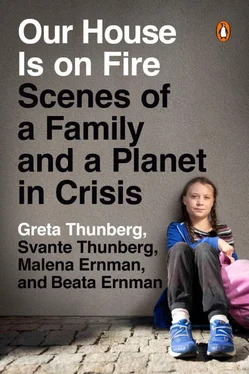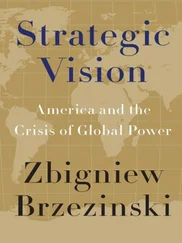Greta Thunberg - Our House Is on Fire - Scenes of a Family and a Planet in Crisis
Здесь есть возможность читать онлайн «Greta Thunberg - Our House Is on Fire - Scenes of a Family and a Planet in Crisis» весь текст электронной книги совершенно бесплатно (целиком полную версию без сокращений). В некоторых случаях можно слушать аудио, скачать через торрент в формате fb2 и присутствует краткое содержание. Город: New York, Год выпуска: 2020, ISBN: 2020, Издательство: Penguin Books, Жанр: Биографии и Мемуары, Публицистика, на английском языке. Описание произведения, (предисловие) а так же отзывы посетителей доступны на портале библиотеки ЛибКат.
- Название:Our House Is on Fire: Scenes of a Family and a Planet in Crisis
- Автор:
- Издательство:Penguin Books
- Жанр:
- Год:2020
- Город:New York
- ISBN:978-0-14313-357-5
- Рейтинг книги:4 / 5. Голосов: 1
-
Избранное:Добавить в избранное
- Отзывы:
-
Ваша оценка:
- 80
- 1
- 2
- 3
- 4
- 5
Our House Is on Fire: Scenes of a Family and a Planet in Crisis: краткое содержание, описание и аннотация
Предлагаем к чтению аннотацию, описание, краткое содержание или предисловие (зависит от того, что написал сам автор книги «Our House Is on Fire: Scenes of a Family and a Planet in Crisis»). Если вы не нашли необходимую информацию о книге — напишите в комментариях, мы постараемся отыскать её.
Our House Is on Fire: Scenes of a Family and a Planet in Crisis — читать онлайн бесплатно полную книгу (весь текст) целиком
Ниже представлен текст книги, разбитый по страницам. Система сохранения места последней прочитанной страницы, позволяет с удобством читать онлайн бесплатно книгу «Our House Is on Fire: Scenes of a Family and a Planet in Crisis», без необходимости каждый раз заново искать на чём Вы остановились. Поставьте закладку, и сможете в любой момент перейти на страницу, на которой закончили чтение.
Интервал:
Закладка:
She was the child, we were the emperor.
And we were all naked.
SCENE 14.
Something That Is Just a Little Off
No parent would think twice about jumping in front of a running train to save their child. It’s an instinct that no one denies.
But when that ‘train’ is actually coming, it’s very rarely an actual speeding locomotive.
Nor is it usually as clear as the split second it takes to throw out your arms to catch someone falling.
It’s just something that’s a tiny bit askew. A little off. And it almost never resembles those rescue scenes we see in the movies.
The contours of a much bigger picture emerged in parallel with the bullying, diagnoses, depression and isolation. For us, that parallel picture developed so slowly that it almost went completely unnoticed. The fact that something in our everyday life was seriously wrong.
It actually wasn’t even that hard to see. Just very uncomfortable.
And once we fixed our gaze on it, it was as if we couldn’t stop looking. Because the insight that comes with this bigger picture suddenly fills your entire field of vision, it changes everything, and every fibre of your body tells you to look away but you can’t, because it’s your child, and there’s nothing you wouldn’t do for your child.
It took us four full years to grasp that image; the image of a skewed whole that would go on to change our lives completely.
SCENE 15.
Virtue-signalling Junkies
I was thirty-eight years old before I became a celebrity. Before I won the Melodifestivalen singing competition, I was well-known.
But being a celebrity is something different; a phenomenon, quite impossible to explain to someone who hasn’t experienced it themselves.
‘But what happens if she wins?’ my then agent asked as we, with bowed heads and heavy sighs, reviewed the calendar for 2009 in the middle of January.
‘She’s an opera singer,’ Svante said with a laugh. ‘Obviously she’s not going to win.’
The day after Melodifestivalen, Svante, I and four journalists from Aftonbladet and Expressen flew to Frankfurt, where I was rehearsing Rossini’s La Cenerentola , which was to premiere five days later. It was all a bit messy.
My agent had to go around begging my employers for a little time off because not only had I unexpectedly made it to the finals but now I’d actually won the Melodifestivalen and I had to be in Moscow to represent Sweden in Eurovision in the middle of a season where I was otherwise supposed to be singing title roles in Frankfurt, Vienna and Stockholm.
‘But will you manage?’ my agent asked.
‘I can manage anything,’ I answered.
Svante and I never usually go to premieres, and we’ve never gone to any celebrity parties – or any other parties for that matter.
Being socially shy makes a person incredibly efficient; as soon as my concerts or performances are over I go straight home.
If I’m working in Stockholm I usually get away before the audience and remove my make-up on my bicycle ride home. If I absolutely must go to my own premiere parties I sneak off early.
Our children and work. That’s all we can manage, Svante and I. Everything else has to be put aside. That’s how we work, how we write.
We try to give voice to something more important than ourselves, and for us environmental and climate issues have become the ultimate example, and consequence, of the prevailing twisted world order.
Before Greta and Beata brought that to our attention we focused on other things. Human rights. Equal rights. Refugees. We weren’t that concerned when it came to the environment. We thought it was being looked after. We were wrong. We thought we would solve everything with technological development. We were wrong. We were challenged by our children and in the end we ran out of arguments and now we’re rapidly running out of time.
We find ourselves in the midst of an acute sustainability crisis, where global warming is one aspect; but if landslides in West Africa are one consequence of this crisis, drought in the Middle East another, and rising water levels for the island nations in the Pacific Ocean a third, then the crisis is expressing itself in our part of the world in the form of stress disorders, isolation and growing waiting lists within paediatric and adolescent psychiatry.
The planet is talking to us through our bar charts and diagrams. We see the animated graphics chewing up the ice in the Arctic north. Planet Earth is running a fever, but that fever – like any other fever – is only a symptom. In this case, the global heating is a symptom of a greater sustainability crisis, in which our lifestyles and our values ultimately threaten our future survival.
The sustainability crisis is what it all boils down to. It includes everything we do – from air pollution to economic structures, and it leads us to the core of humankind’s state of health.
SCENE 16.
The Antwerp Zoo
In the winter of 2010 we rent a rather seedy apartment on Rue du Fossé aux Loups in Brussels. Beata has just turned four, and we’re going to spend one of my days off at the Antwerp zoo. A bottle of lice remover has exploded in the big suitcase on the flight to Brussels and now everything we own smells like lice shampoo. All the Pippi and Madicken DVDs are ruined and the whole stairwell stinks of Paranix.
We get up early, and it’s not even nine o’clock by the time we’re ready to go to catch the train at Brussels Midi station. There’s only one thing left to do: Beata has to put on a pair of clean socks. She is extremely sensitive about many things and clothing is no exception.
‘No! It feels dry,’ she’ll scream, and wriggle around on the floor in the hall because a sweater or a pair of trousers doesn’t sit quite right. Sometimes we have to carry her out to the elevator and put her clothes on in the stroller, but there are days when not even that is possible, days when everything gets derailed and none of our usual everyday tricks work.
And this is of course completely unsustainable.
So today we’re going to make a stand and set an example. We’re going to fight fire with fire. She has to put on a fresh pair of socks before we leave. But Beata refuses.
After two hours we propose meeting halfway: taking off the old, dirty socks she has been wearing for almost a month.
She refuses.
So today we draw a line, we put our foot down. It is not our first time, but today Svante and I have all day and we do not intend to fold.
At two o’clock we leave the apartment and take the train up to Antwerp.
Beata still isn’t wearing any socks in her shoes. She dangles her feet contentedly from the seat on the train.
Our duel is over and Beata is the sole victor.
‘You make naughty little Lotta on Troublemaker Street seem like Mahatma Gandhi,’ Svante says, laughing.
Beata smiles her most mischievous smile, and as always in that moment she is totally irresistible. You melt.
She is quite content.
We are going to the zoo.
SCENE 17.
Meltdown
It’s called a meltdown. An outburst caused by feelings getting pent up, until they can no longer be processed within the realm of what we call reasonable behaviour.
One of Beata’s first meltdowns was on Christmas Eve, a month or so before the outing to the Antwerp zoo.
She couldn’t handle the anticipation and impressions, and exploded in a fit where she simply lost control and ended up in something that could only be described as emotional chaos.
Nothing could contain her, and it ended with us wrestling on the floor until I held her, calm, in my embrace.
Читать дальшеИнтервал:
Закладка:
Похожие книги на «Our House Is on Fire: Scenes of a Family and a Planet in Crisis»
Представляем Вашему вниманию похожие книги на «Our House Is on Fire: Scenes of a Family and a Planet in Crisis» списком для выбора. Мы отобрали схожую по названию и смыслу литературу в надежде предоставить читателям больше вариантов отыскать новые, интересные, ещё непрочитанные произведения.
Обсуждение, отзывы о книге «Our House Is on Fire: Scenes of a Family and a Planet in Crisis» и просто собственные мнения читателей. Оставьте ваши комментарии, напишите, что Вы думаете о произведении, его смысле или главных героях. Укажите что конкретно понравилось, а что нет, и почему Вы так считаете.






![Корнелл Вулрич - Murder at Mother’s Knee [= Something That Happened in Our House]](/books/398097/kornell-vulrich-murder-at-mother-s-knee-somethin-thumb.webp)





